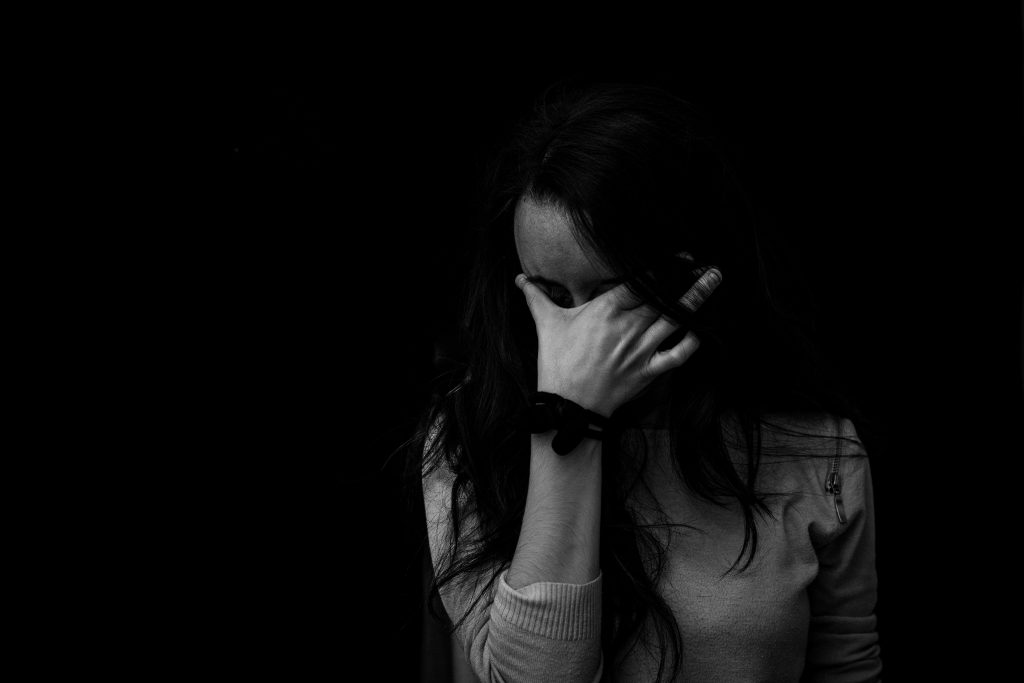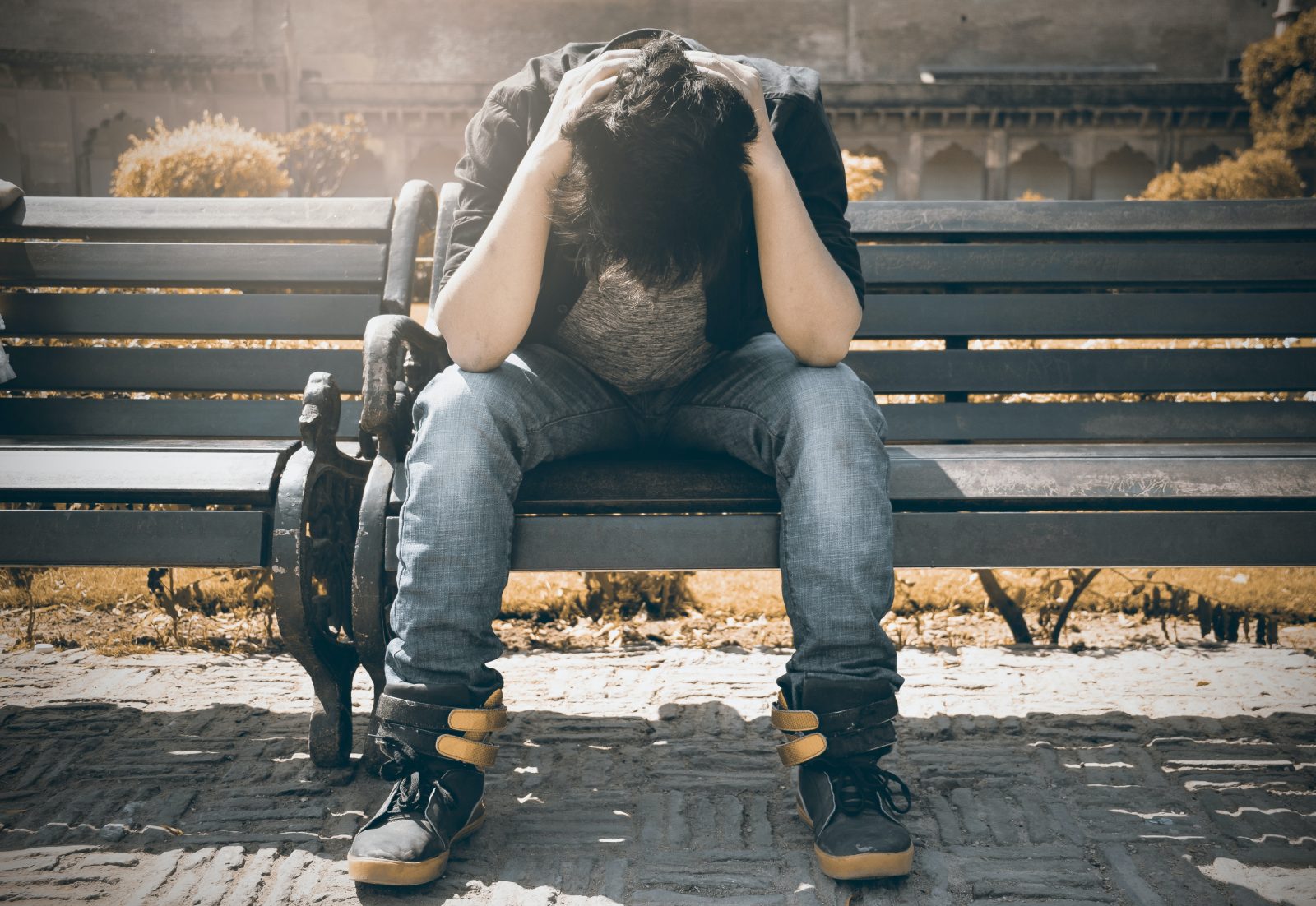
Paranoid delusions are often associated with psychotic illnesses like schizophrenia. Depression is not usually considered a psychotic mental health issue because people who suffer from it know they are depressed. Illness is only psychotic of the person isn’t aware that they have it. However, that doesn’t mean depression and paranoia can’t overlap—they do.
Psychotic depression
Depression with psychosis or psychotic depression is a real mental health issue. It’s a form of severe clinical depression which is less common than moderate depression. (Have a look at our article on the symptoms of depression for a fuller explanation on different types of depression). The main symptoms of severe depression include:
-Changes in appetite (eating more or less)
-Hypersomnia/insomnia (sleeping very little or excessively) as well as disturbed sleep patterns
-Feeling worthless and/or guilty
-Loss of enjoyment in previously pleasurable activities
-Thoughts of death and/or suicide
However, psychotic depression includes all these symptoms plus added symptoms of psychosis.
Psychosis Symptoms

- Delusions—these are irrational or false beliefs, and include paranoia. For example, someone with psychotic depression may believe that they are being watched all the time, or that someone is after them. Although these beliefs are not true, it’s important to remember that they’re very real and frightening to the one experiencing them.
- Psychomotor agitation/retardation— this is either extreme fidgeting and being unable to sit still and relax, or where thoughts and movements become much slower.
- Hallucinations—these can involve any of the senses. This means a person who is hallucinating may hear, see, touch, taste or smell something that is not really there. The most common hallucinations tend to be auditory and visual. Hallucinations tend to be of negative things, scary things. And again, the person experiencing them truly believes what they’re seeing/hearing is real.
Hallucinations and paranoid delusions tend to reflect the person’s severely depressed mood and thoughts, e.g. feeling guilty over something they didn’t do. Further, those who suffer from psychotic depression are even more susceptible to suicidal thoughts. So it’s vitally important to learn how to help someone with depression, particularly if you feel that their thoughts may be about death or suicide.
Possible causes of psychotic depression

There’s a range of things that could cause this type of depression. However, they mainly include things such as severe childhood trauma, bereavement and serious health issues. Other more common stressful events in life such as divorce, financial troubles and family problems can trigger psychotic depression. Genes could also play a part; if depression runs in the family, it can make you more likely to develop it than the average person.
Although it’s unlikely that a ‘depressive gene’ exists, a diathesis-stress model could explain why people say some mental health issues run in the family. A ‘diathesis’ is a biological or genetic vulnerability/predisposition. A ‘stress’ is something in the environment that unlocks this vulnerability. For example, someone may have never felt depressed in their life, but unbeknownst to them, they have a vulnerability towards depression. Things like losing a job, or something particularly stressful that happens, trigger this vulnerability. This could explain why only some people develop mental illnesses after experiencing stressful situations that the rest of the population also face.
What is paranoia?
What is the difference between Paranoia and Depression? Is one worse than the other? Surely depression and paranoia are both very severe mental illnesses with extremely negative symptoms on a daily basis for a person that has them. However, just because someone is paranoid doesn’t mean they’re depressed and vice versa.
Paranoia has been around for centuries. It’s an illness or disorder in which a person perceives threats where no real threat exists. The classic example of this is perhaps the guy sitting alone in his car in a parking lot at night, who believes that people are watching him, or plotting against him. Paranoia can even be an arrogant belief in your own importance, knowledge and abilities.
What does this mean for you?

If you know that depression runs in your family, or you feel that stressful situations make you more anxious than most, now is the time address it. Left unchecked, anxiety can spiral into depression. Similarly, without help depression can turn from mild to severe. If you experience mild depression or anxiety, now is the time to seek help, look for anxiety tips and learn to reduce it. Talk to others about your feelings and seek treatment if necessary.
Even if you have depression, or know someone who suffers from psychotic depression, there are solutions. Both antidepressants and antipsychotic medication can aid those who suffer from severe depression. More long-term solutions include therapies such as CBT (Cognitive Behavioural Therapy). This involves 1-to-1 talking sessions where the depressive patient is gently helped to analyse their thoughts and beliefs. Doing this can help them eventually realise that their beliefs are false or irrational.
It’s important to talk about mental illnesses like depression because it will help remove the stigma associated with them. As more and more suffer from it, even more awareness of this mental health issue needs to be spread. Depression and paranoia are uncommon, but it’s real. Therefore, empathising with those who suffer from it and understanding their condition is essential to provide help and support.
















4 Comments